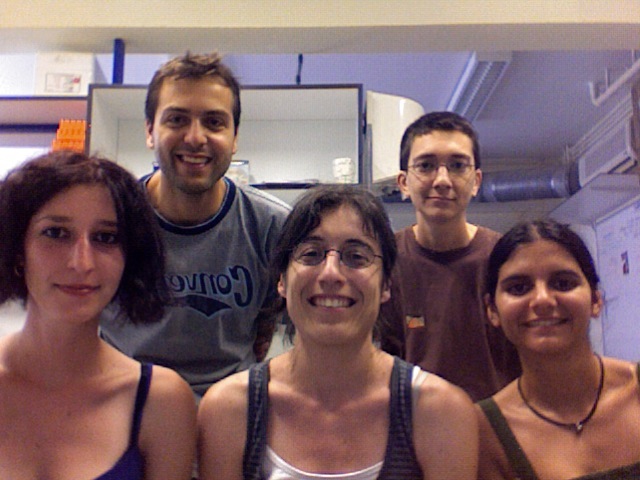Caroline Medioni and Florence Besse

Exchange and networking are key tenets of science, as cell biologist and imaging specialist Caroline Medioni discovered when she spent six months at EMBL Heidelberg in Anne Ephrussi’s group honing a system to image axon growth within intact fly brains.
Caroline’s team leader, Florence Besse, of the Institute of Developmental Biology and Cancer (IBDC) in Nice, was originally a staff scientist in Anne’s group on RNA localization in Drosophila. In 2009, she moved to Nice with the aim of unraveling in vivo the mechanisms of RNA transport in a group of neurons involved in olfactory memory in the central nervous system of the fly.
After working at the Institute of Developmental Biology in Marseille Luminy, Caroline moved back to the IBDC to work for Florence. Here, given her expertise in imaging and microscopy, Florence charged her with developing a new protocol to follow axon growth in real time in an intact brain.
“There were three main reasons why Florence wanted me to join Anne’s group,” Caroline says. “For my project, I needed the highly efficient microscopes that EMBL has. She knew I would learn more about RNA localization in vivo. Also, I had never worked in a foreign country, and she thought coming to EMBL would be a wonderful opportunity for me.”
Caroline was happy to take up Florence’s challenge. With an EMBO three-month fellowship, she began work in Anne’s group. At EMBL she met P-CUBE programme members Wolfgang Huebner and Petra Lindemann, who encouraged her to apply for a P-CUBE fellowship. This enabled her to extend her stay in Heidelberg by another three months to the end of June.
“My time at EMBL was really productive,” Caroline says. “I used the up-to-date microscopes at the Advanced Light Microscopy Facility (ALMF), where the staff were very supportive. The mechanical workshop built an imaging chamber for my samples and I went on theoretical and practical microscopy courses.”
Caroline is still collaborating with her former team members and hopes to return at the end of the year. “EMBL is amazing, in terms of the scientific environment, the excellent equipment, support and motivation from other scientists. My only fear is that it’s a bit like the Truman show. When this is the only world you know, life after EMBL might not be easy!”